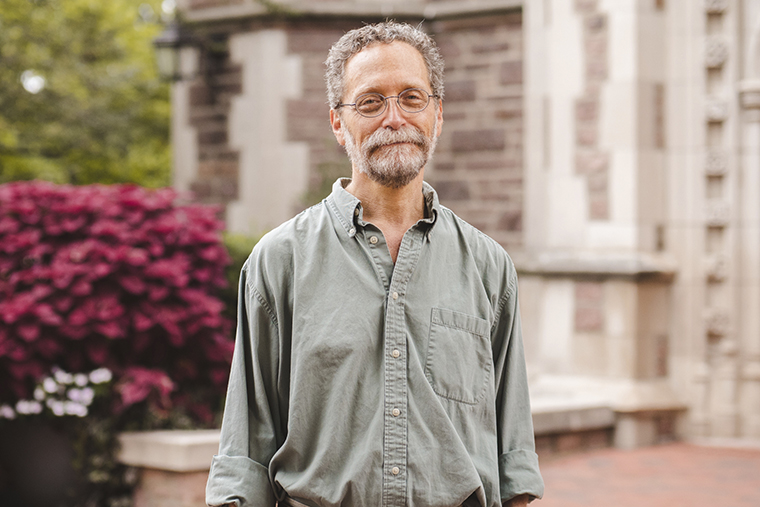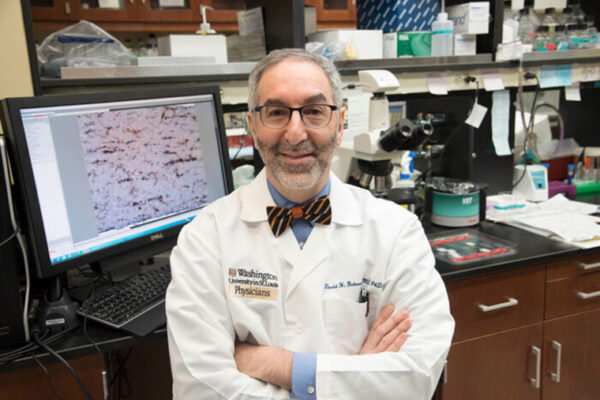|
News for the Washington University Campuses & Community
Straight from The Source
|
|
|
|
|
Video game changes can cut screen time, boost revenue
New research from Olin Business School finds that when a video game-making firm changes a game’s rewards schedule and how long gamers can play in a sitting, the firm can actually make more money — and users devote a smaller share of time to gaming.
|
|
|
Brestoff, Theunissen recognized by NIH
Obesity expert Jonathan R. Brestoff, MD, PhD (right), and regenerative medicine specialist Thorold Theunissen, both at the School of Medicine, have received High-Risk, High-Reward Research awards from the National Institutes of Health (NIH).
|
|
|
Looking for the best from man and machine
A multi-institutional effort that includes the McKelvey School of Engineering will bring man and machine together in an effort to accelerate the discovery of new materials. Roman Garnett is part of the team.
|
|
|
Complex energies, quantum symmetries
New research from Kater Murch in Arts & Sciences realizes one of the first parity time-symmetric quantum systems. Such PT symmetry experiments have potential applications to quantum computing. The work is published in the journal Nature Physics.
|
|
|
|
Events
|
4:30 p.m. Thursday, Oct. 10
Saturday, Oct. 12 – Tuesday, Oct. 15
View more events →
|
|
Washington People

|
|
Stan Braude, professor of practice in biology in Arts & Sciences, is a talented teacher who instills in his students the skills they need to prepare for life outside of Washington University. Take it from his students, though — because if you ask him, he will give all the credit to Joe (his St. Bernard).
See more Washington People →
|
|
|
|
|
|
|
The Collective Impact Team, comprised of three Civic Scholars in the Gephardt Institute for Civic and Community Engagement, shares online in interviews and essays about its projects to improve health outcomes in Guatemala, Uganda and the United States.
|
|
|
|
|
|
|
 David Gutmann, MD, PhD, the Donald O. Schnuck Family Professor of Neurology at the School of Medicine, has received a second Einstein Visiting Fellowship from the Berlin Institute of Health. He will study how immune cells in the brain known as microglia are linked to various problems in the disease neurofibromatosis type 1. David Gutmann, MD, PhD, the Donald O. Schnuck Family Professor of Neurology at the School of Medicine, has received a second Einstein Visiting Fellowship from the Berlin Institute of Health. He will study how immune cells in the brain known as microglia are linked to various problems in the disease neurofibromatosis type 1.
|
|
|
|
Research Wire
 Hong Chen, assistant professor at the McKelvey School of Engineering and at the School of Medicine, received a $309,909 grant from the National Institute on Aging of the National Institutes of Health (NIH) to explore the application of a focused ultrasound-mediated drug delivery technique for treating Alzheimer’s disease. Hong Chen, assistant professor at the McKelvey School of Engineering and at the School of Medicine, received a $309,909 grant from the National Institute on Aging of the National Institutes of Health (NIH) to explore the application of a focused ultrasound-mediated drug delivery technique for treating Alzheimer’s disease.
Read more from the Research Wire →
|
|
|
You have received this e-mail because you expressed interest in receiving updates from wustl.edu, the Record and its related products by e-mail. Thanks for your subscription. If you do not want to receive the Record via e-mail, you may unsubscribe. Got this as a forward? Sign up to receive our future e-mails.
|
|